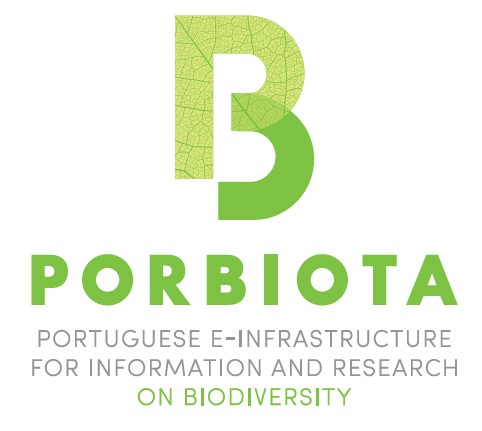
PORBIOTA is a distributed e-infrastructure for managing national biodiversity data, with a view to integrating it into the European e-Science infrastructure for biodiversity and ecosystems research LIFEWATCH (ESFRI Roadmap 2016 Landmark). Adapted according to national needs (research, management, policy, administration, citizen science), but compatible with the requirements of LIFEWATCH and other international initiatives, PORBIOTA aims to promote a national agenda for biodiversity research, focusing on providing services to the scientific community, policy-makers and managers, and contributing to public awareness and understanding of biodiversity-related problems through citizen science and other outreach programmes. The infrastructure is led by a consortium that includes top national R&D units, natural history museums, the MAREFOZ infrastructure, the Portuguese GBIF node, and the Institute for Nature Conservation and Forests (ICNF), including two other RNIIE nodes (ICOSPT and LTER Portugal).Together, PORBIOTA’s partners hold the largest amount of information on biodiversity and ecosystem functioning at national level.The aim of PORBIOTA is to compile and integrate all the biodiversity information that is dispersed at national level (e.g. databases, literature, multimedia, natural history collections), subsequently facilitating access, data interoperability and a set of specialised tools for modelling and analysing large amounts of biodiversity data. PORBIOTA will therefore be an essential tool for ecosystem monitoring programmes and direct support for the implementation and evaluation of nature conservation and biodiversity policies.PORBIOTA has a strong ecosystem research component through LTER Portugal, which is a capacity-building network focused on long-term monitoring of target areas, and is a member of eLTER (ESFRI Roadmap 2016), the European LTER Europe network and the international ILTER network.The main objectives are to collect, process and collate a series of high-quality data on ecosystems (generating tools and approaches to respond to current environmental and business challenges), create a legacy for future generations, participate in education and the dissemination of science in Portugal.Another important component of PORBIOTA is ICOS-PT, which will be the Portuguese node of ERIC ICOS (Integrated Carbon Observation System, ESFRI 2016 Landmark Roadmap), whose aim is to monitor the effect of GHGs on terrestrial ecosystems and sensitive urban areas.
The core elements of ICOS-PT are the experimental field stations, which will provide detailed, high-quality observations of ecosystems.ICOS-PT data is fundamental for harmonising the carbon and water cycle on a global scale.
LTER Portugal – Ria de Aveiro (SPECO Video): https://www.youtube.com/watch?v=XKkSa0PNVq4
Water quality online monitoring station located at the LTsER platform Ria de Aveiro.
https://sondaecomare.web.ua.pt/
